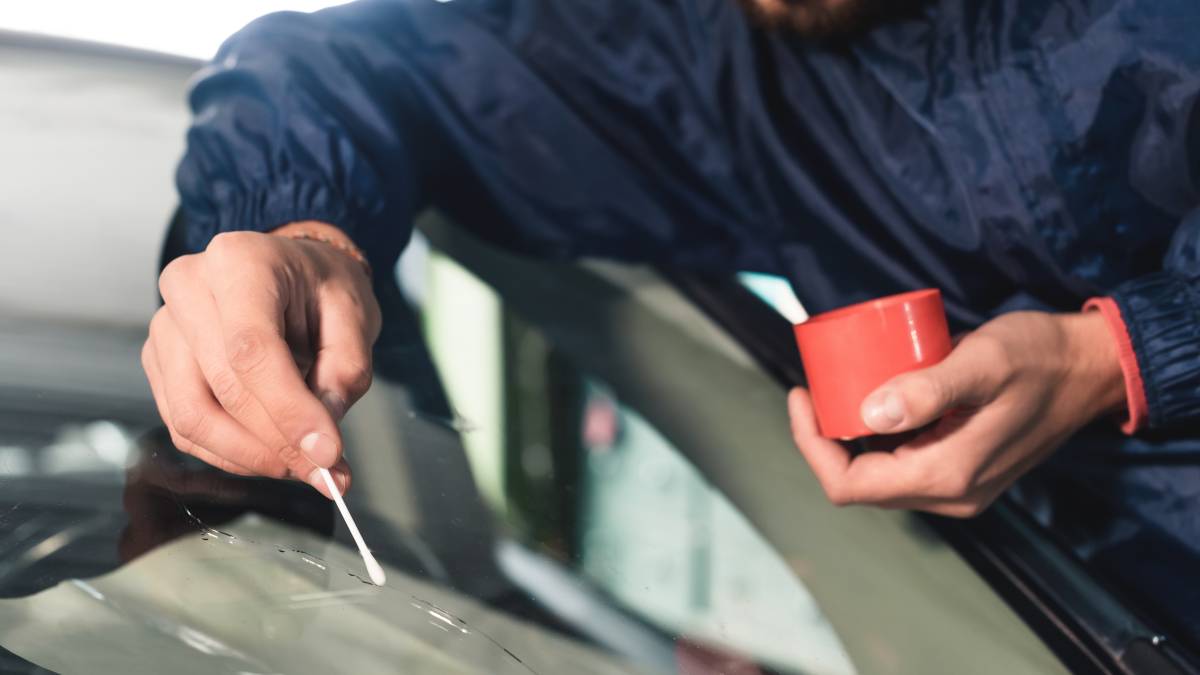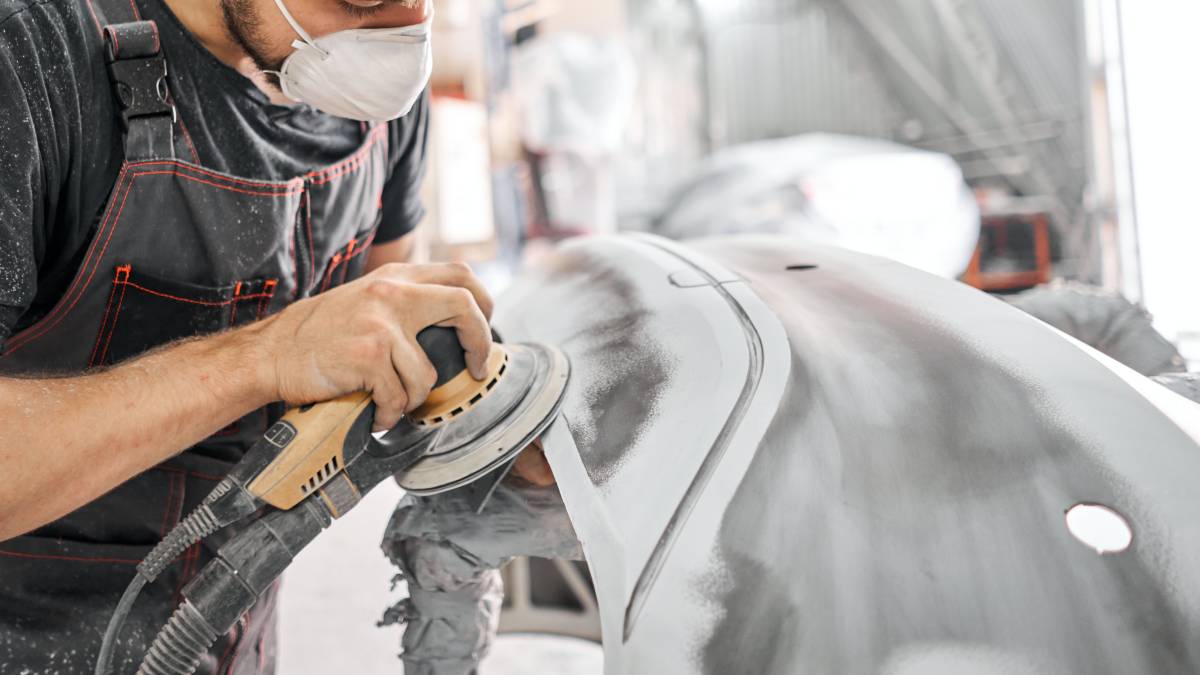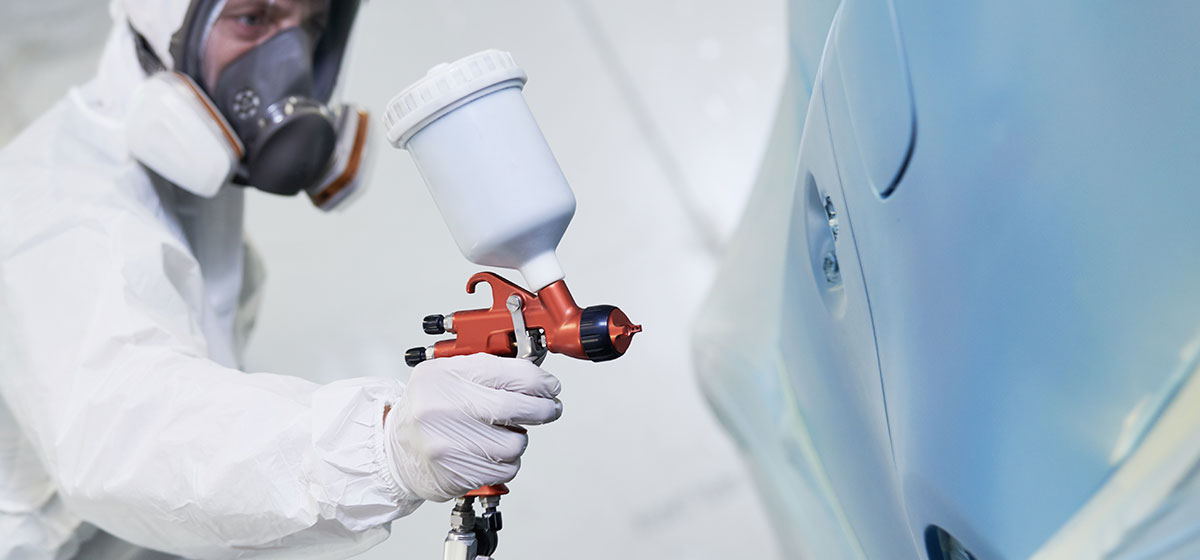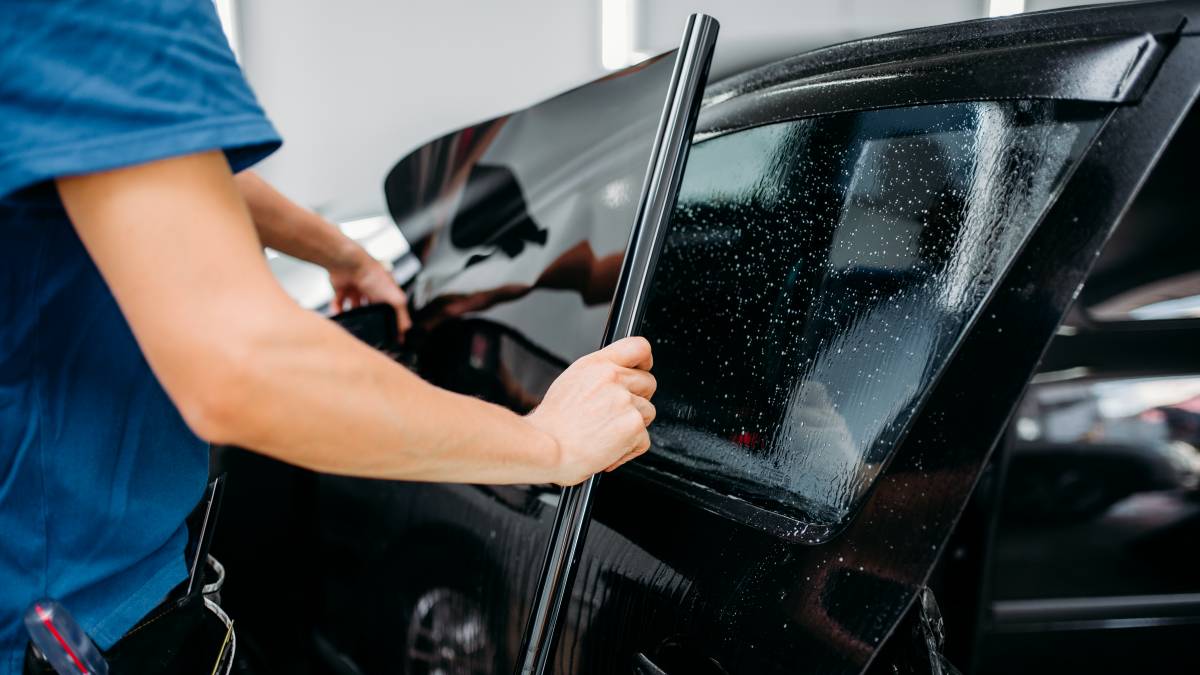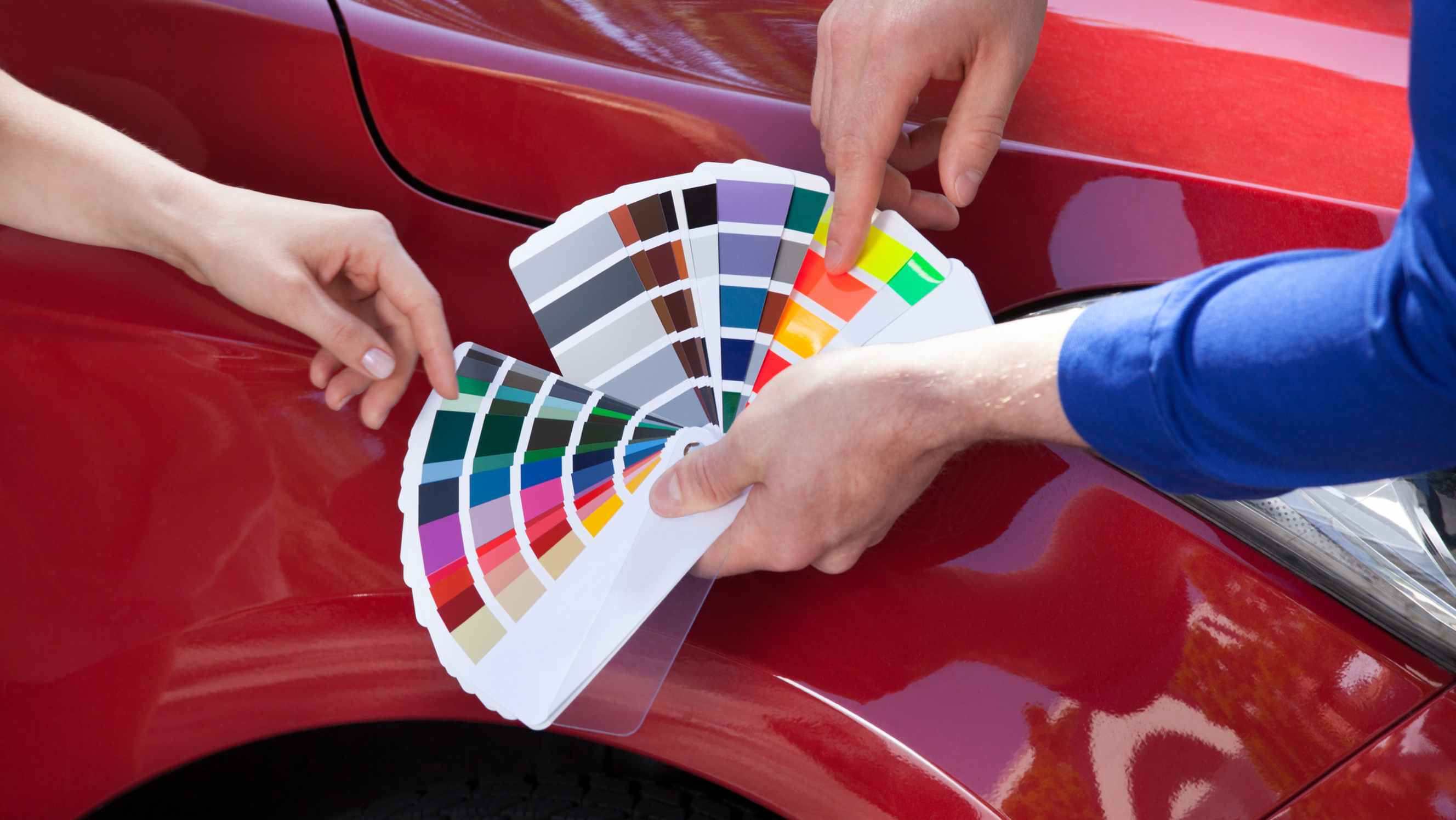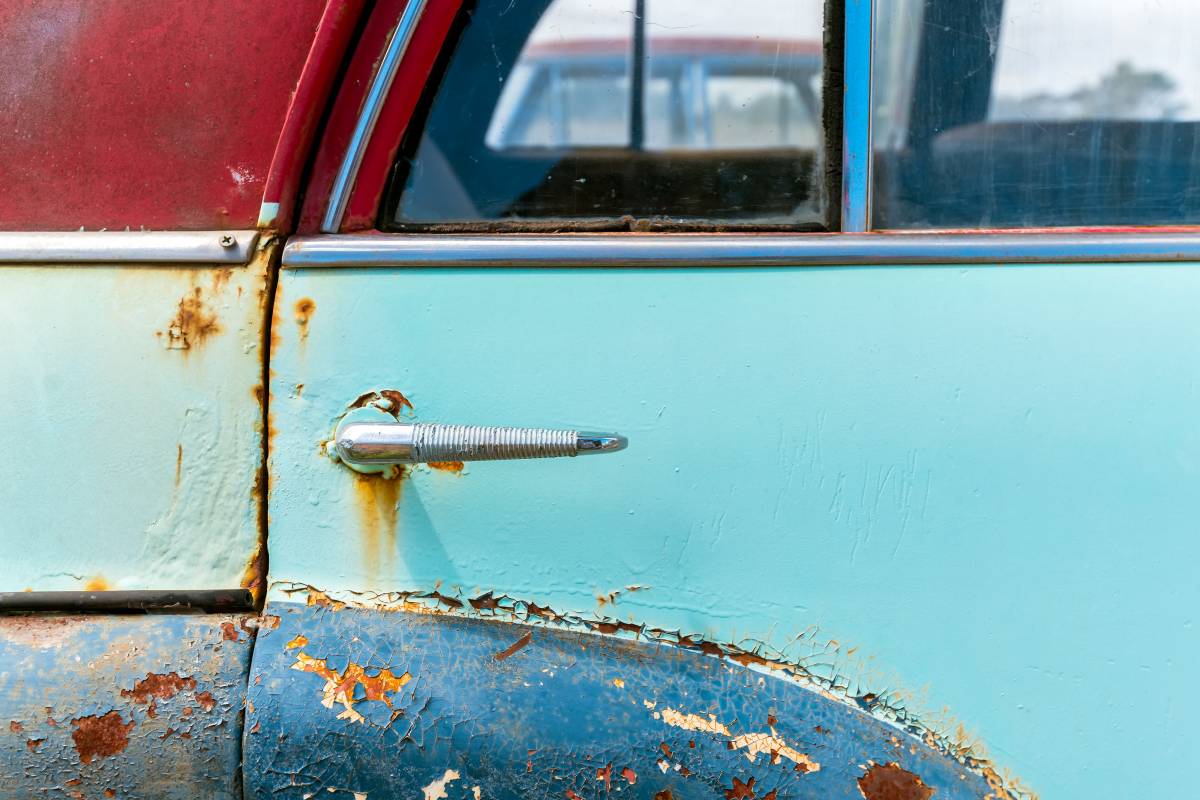- Home/
- Costs/
- Car Wrapping/
- Car Wrapping Cost Guide
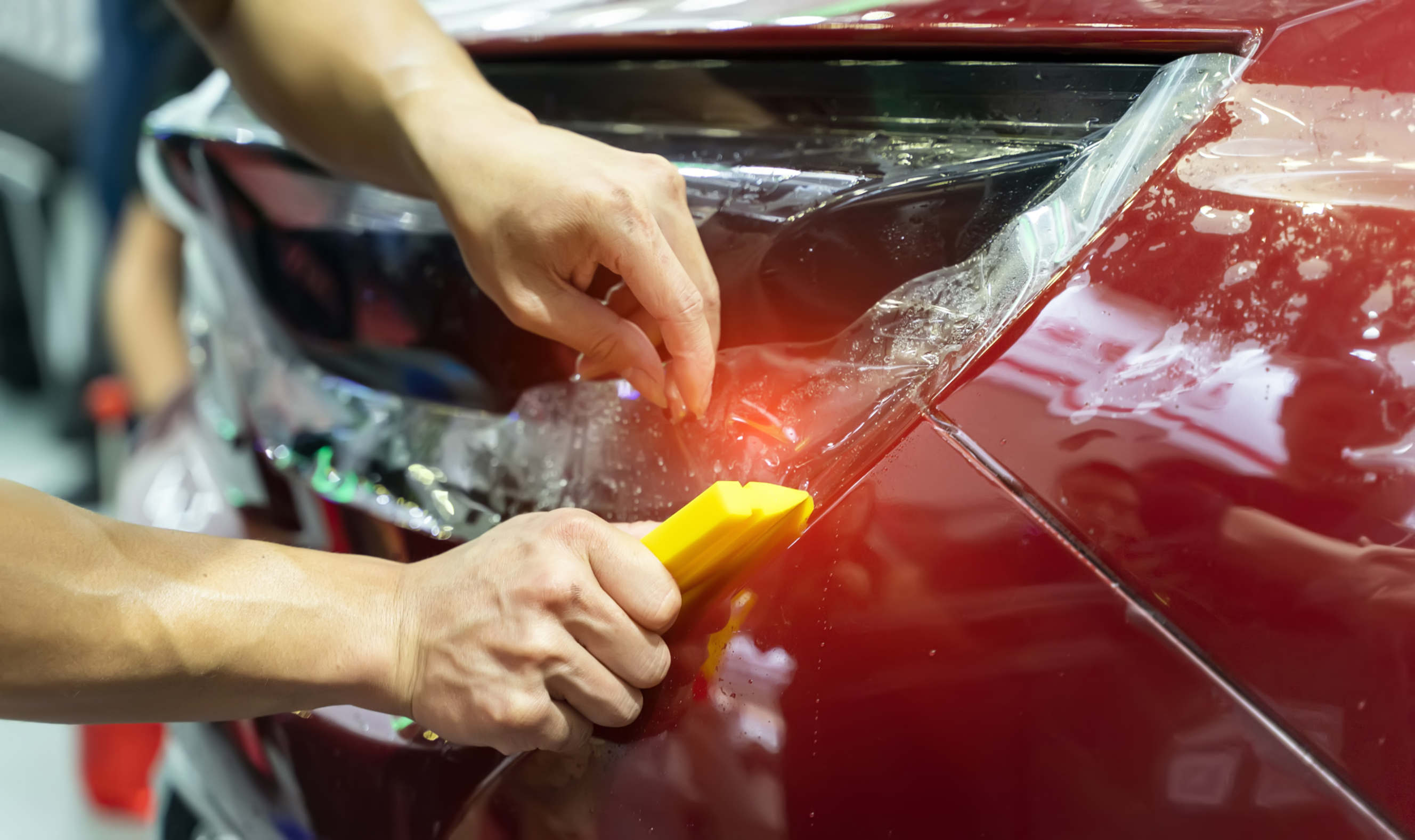
How much does car wrapping cost in the US?
Get a free quote nowPost to find a price. It's free and only takes a minute.
Average cost of car wrapping
$500 - $6,500
low
$500
median
$3,500
high
$6,500
Last Updated on
Key Facts
- Full car wrap costs in the US range from $500 to $6,500 per vehicle, including labor. The total price depends on size, material, and complexity.
- Partial wraps generally cost less, ranging from $600 to $2,600.
- Removing the wrap before selling your car can increase resale value if the original paint is in good condition.
Want to give your car a unique or fresh look? Car wrapping is a great way to customize your vehicle and express your personal style or brand identity. But before diving into a new car project, it’s important to figure out what it’ll cost you.
The average car wrapping cost in the US ranges from $500 to $6,500, but this could still change based on factors like materials used and design complexity. So, in this guide, we’ll cover everything you need to know about pricing, so you can confidently choose a wrap that fits your vision and budget.
What are the average costs of car wrapping in the US?
If you’re wondering how much does it cost to wrap a car in the US, the numbers can vary quite a bit depending on where you are. Here’s a table summarizing the average costs of full car wraps across some of the major cities:
| State/City/Area | Average cost of full car wraps* |
|---|---|
| New York, NY | $2,600 to $3,100 |
| Los Angeles, CA | $500 to $5,100 |
| Chicago, IL | $2,100 to $5,000 |
| Houston, TX | $900 to $3,100 |
| Phoenix, AZ | $1,600 to $5,100 |
| Philadelphia, PA | $1,300 to $3,500 |
| San Diego, CA | $1,400 to $6,500 |
| Dallas, TX | $900 to $3,600 |
| Jacksonville, FL | $2,600 to $5,100 |
*Inclusive of service and wrap, before taxes
Car wrap costs in New York range from $2,600 to $3,100, reflecting the city’s higher cost of living and premium car wrap finishes. Los Angeles, on the other hand, has a wide price range of $500 to $5,100, where entry-level wraps are budget-friendly, but premium finishes can push costs much higher.
Chicago offers a range between $2,100 and $5,000, with pricing depending on material quality and vehicle size. In contrast, Houston remains more affordable, with costs from $900 to $3,100. You can find service providers in this area that makes car wraps that won’t cost too much.
Phoenix sees prices between $1,600 and $5,100, largely influenced by the demand for wraps suitable for the hot climate. Philadelphia has car wrap costs ranging from $1,300 to $3,500—a mid-range pricing spectrum for typical vehicle wraps.
San Diego tops the list with prices between $1,400 and $6,500, but high-end customizations can be even more expensive. Dallas provides a more accessible range, from $900 to $3,600, for those looking for basic wraps at an affordable rate. Lastly, Jacksonville comes in with car wrap costs ranging from $2,600 to $5,100 due to local car culture trends and the availability of skilled installers.
What factors affect the costs of car wrapping?
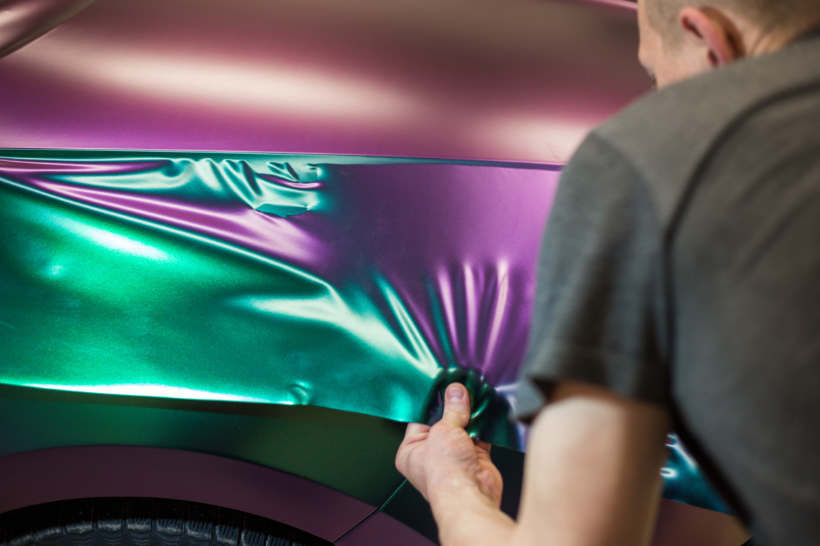 A professional carefully applies a colorful car wrap. (Source: iStock)
A professional carefully applies a colorful car wrap. (Source: iStock)
When it comes to car wrapping, there are several variables that can significantly influence the final price, from the type of vinyl you choose to the complexity of the design. Let’s dive into the specifics so you can better understand what drives car wrap costs near you and make an informed choice.
Size and type of vehicle
| Type of vehicle | Estimated costs* |
|---|---|
| Small cars | $1,900 to $2,600 |
| Sedan | $3,100 to $4,900 |
| Coupe | $2,900 to $4,500 |
| Truck | $3,300 to $5,700 |
| SUVs | $3,600 to $5,700 |
| Small to large vans | $3,100 to $4,600 |
*Inclusive of service and wrap, before taxes
The size and type of your vehicle play a huge role in determining car wrapping costs. Smaller cars like the Honda Civic Type R and BMW M2 require less vinyl, which means lower material and labor expenses. Their simpler body shapes also make them easier to wrap, resulting in more affordable pricing, usually between $1,900 and $2,600.
Medium and larger sedans and coupes, like the Toyota Camry or Chevrolet Camaro ZL1, need a bit more vinyl and take longer to wrap due to their size and complex shapes. These factors drive up the cost, putting the price range for sedans between $3,100 and $4,900 and for coupes around $2,900 to $4,500.
If you’ve got a truck, expect even higher costs. Such vehicles, like the Ford F-150, require more wrapping due to their size, usually costing between $3,300 to $5,700.
Small to mid-sized SUVs, like the Hyundai Tucson and Mazda CX-5, require more material and labor, driving up costs to around $5,700 for a full wrap. Meanwhile, the rugged features and larger surface area of vans make them some of the most expensive vehicles to wrap. Prepare $3,100 to $4,600 if you’d like a complete wrap.
Preparation and surface condition
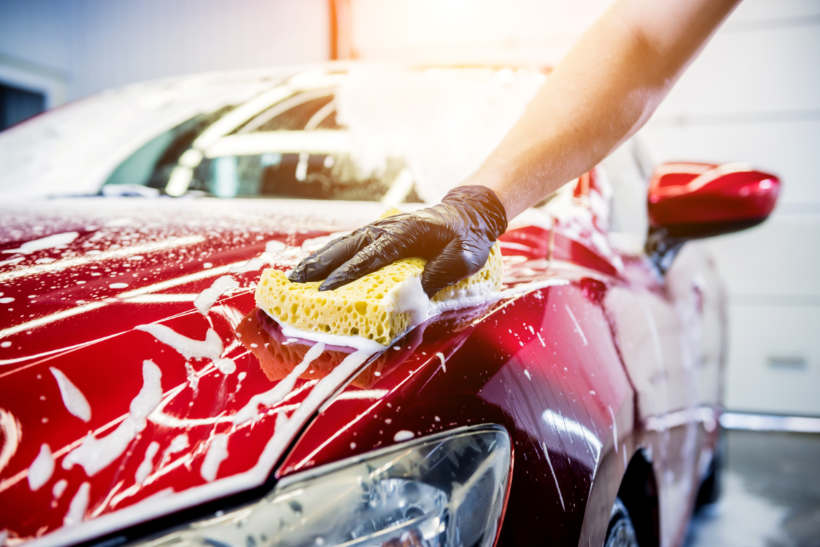 Prepping the car surface – a clean start for perfect wrapping. (Source: iStock)
Prepping the car surface – a clean start for perfect wrapping. (Source: iStock)
Prepping and ensuring the good condition of your car’s surface significantly impact wrapping costs. Car inspections are a critical first step, as this allows wrap installers to assess the paint quality and identify areas needing attention. Just like you would when preparing a car for a paint job, you need to ensure the vinyl adheres smoothly and lasts.
First, the car must be thoroughly cleaned to remove any dust, dirt, oil, or residue. High-quality wrap shops use specialized degreasers or isopropyl alcohol to ensure that there are no contaminants left. After all, even minor residues like pollen or sap can impact the vinyl’s ability to stick to the car properly.
Installers often use clay bars or microfiber cloths for a spotless surface. This adds to the preparation time and cost, especially if the vehicle has been exposed to harsh outdoor conditions.
The paint condition is also important. Peeling or flaking paint must be repaired before wrapping to avoid lifting or bubbling. More intensive preparation may be required for cars with older or oxidized paint. Brittle paint could come off with the wrap, making minor paint repairs necessary to protect both the vehicle and the longevity of the wrap.
Repainted cars also need special handling. Freshly painted vehicles should ideally wait at least a month before being wrapped to prevent peeling or bubbles.
Textured surfaces, plastic trims, or other non-metal parts present additional challenges. These areas often need special adhesive treatments, which add to both the time and the cost of preparation.
Finally, environmental conditions are crucial factors to consider. High humidity or extreme temperatures can affect the adhesive’s performance. That’s why many wrap shops operate in climate-controlled environments to ensure the best possible conditions and minimize the risk of issues down the line.
Type of wrap material
| Type of wrap material | Estimated costs* |
|---|---|
| Gloss | $730 to $800 |
| Metallic | $790 to $900 |
| Matte | $1,090 to $1,300 |
| Chrome | $1,150 to $1,400 |
| Printable | $350+ |
| Paint Protection Film (PPF) | $1,300 to $2,000 |
*Based on the wrap needed to fully cover a mid-sized car (60 to 65 feet)
The cost of vinyl wrap depends largely on the type of material you choose. Standard glossy wraps are the most affordable, ranging from $730 to $800, depending on the size of your vehicle. They offer a great balance of cost and visual appeal.
Matte and metallic wraps are pricier, going up to $1,300 and $900 respectively. These specialty finishes provide unique looks but also require more careful application, which contributes to the higher cost.
A chrome vinyl wrap ranges from $1,150 to $1,400 because it adds a touch of luxury to the vehicle. However, they require frequent cleaning and careful maintenance to preserve their shine and prevent damage, which can add to the upkeep costs.
Another option is printables, starting from $350. These are a good solution for those looking for a short-term change or hyper-personalized design. You can either send in your own artwork or branding to be printed or pay extra for the shop to lay it out for you.
You can also opt for a Paint Protection Film (PPF) for $1,300 to $2,000. This is transparent, so it’s not really used for aesthetics. Instead, it’s added to protect the existing paint or wrapping of a vehicle.
Complexity of the design
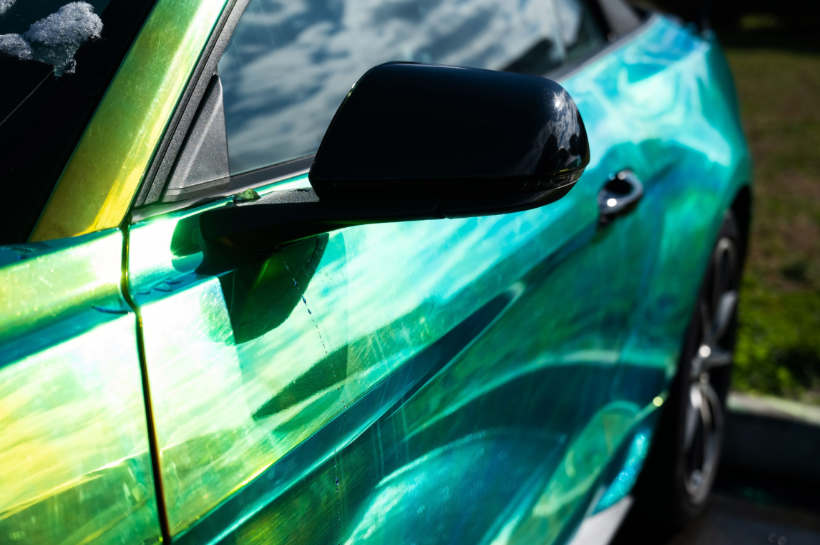 A detailed car wrap with vibrant colors and reflections. (Source: iStock)
A detailed car wrap with vibrant colors and reflections. (Source: iStock)
The complexity of the design can have a big impact on the overall cost of wrapping a car. Simple, solid colors are the most affordable, as they require minimal precision during installation. Single-color wraps like gloss black or matte gray are popular choices for those wanting a style change that doesn’t break the bank.
Intricate patterns or custom graphics add to the base cost because of the extra time and skill required. Designs like racing stripes or camouflage need specialists or a team to create the template and installers to align the patterns precisely across all panels.
Layered or multi-tone wraps also increase costs. These wraps involve multiple layers of vinyl to achieve shadowing or accent effects, requiring each layer to be applied with perfect alignment. This level of customization is popular among car enthusiasts who want something distinctive without going for a full custom artwork wrap.
Wrapping coverage
| Wrapping coverage | Estimated costs* |
|---|---|
| Partial wrap | $600 to $2,600 |
| Full wrap | $2,600 to $7,100 |
| Lettering and graphics | $600+ |
*Considering a small to large passenger car
Unlike a car painting job, wraps can easily be removed or replaced. This makes them ideal for those looking to switch things up or for businesses needing flexible branding options. But the extent of the wrapping coverage is still something to think about, especially when you’re deciding between respraying, painting, or wrapping your vehicle.
A full car wrap costs anywhere from $2,600 to $7,100. This includes every visible part of the car, from the hood to the bumpers.
Partial wraps are more budget-friendly. A quarter wrap or half wrap costs anywhere between $600 to $2,600, depending on the areas covered. Popular options include roof wraps or accent wraps on the hood, mirrors, or fenders, which allow for customization without the full expense of whole car wrap costs. This is also used to make repaired car surfaces look brand new again.
Lettering, graphics, or smaller accents can be an even cheaper option, starting at around $600. These are perfect for minor detailing or adding logos and branding elements to specific areas, so they’re a common choice for commercial vehicles.
Geographic location
Where you live also has a big impact on how much car wrapping costs near you are. Major cities with a high cost of living and a greater demand for skilled installers drive up the prices. The demand is often greater in these districts, and top-rated installers charge a premium.
In contrast, rural or suburban areas often have lower car wrap costs. This is partly because of reduced operational costs for shops, but it may also mean fewer services are available. If you live in a smaller town, you might need to travel to a nearby city to get a reputable car wrapping job done, which can add travel expenses to the overall cost.
In regions with a strong car culture or where vehicle customization is popular among car owners, prices can vary widely. High competition in these areas can sometimes lead to promotional discounts, especially during certain seasons. However, in areas with limited wrap shops, you might face higher prices and longer wait times due to less competition and availability.
What are some ways to save on car wrapping?
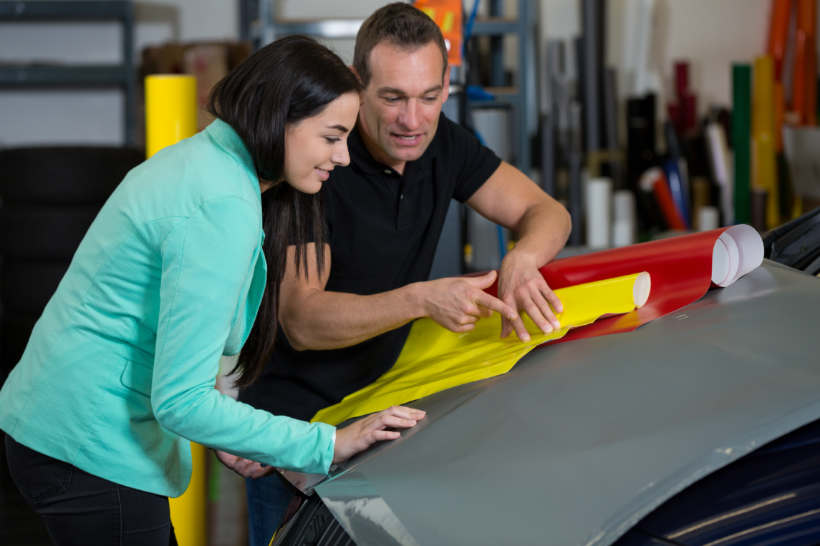 Choosing smart colors and materials can save on car wrap costs. (Source: iStock)
Choosing smart colors and materials can save on car wrap costs. (Source: iStock)
If you want to save on car wrapping without compromising too much on quality, here are some practical tips to help you lower costs while still achieving a great result:
Opt for a partial wrap instead of a full wrap: Partial wraps are significantly cheaper, often costing between $600 and $2,600, depending on the coverage area. By wrapping only specific parts of your vehicle—like the roof, hood, or mirrors—you can get a custom look without the high cost of a full wrap.
Choose standard vinyl instead of specialty wraps: Standard vinyl, like gloss, matte, or satin, is generally more affordable than specialty options like chrome. These options still offer a wide range of colors and finishes, so you can still style your vehicle without paying a premium for uncommon or specific materials.
Select a simple, single-color design: Single-color wraps are easier to apply, reducing both labor time and installation costs. Choose a classic matte black or gloss white to save money and maintain a timeless look that’s easy to keep in good condition.
Shop around and get multiple quotes: Contact several wrap shops in your area to compare prices and services. While the cheapest option may not always be the best, comparing quotes helps you find a balance between quality and affordability.
Schedule wrap installation during off-peak seasons: Many wrap shops offer discounts during off-peak times, such as winter, when demand is lower. Prices tend to rise during warmer months or before major auto events when shops are busiest.
What should you look for in a professional car wrapping service?
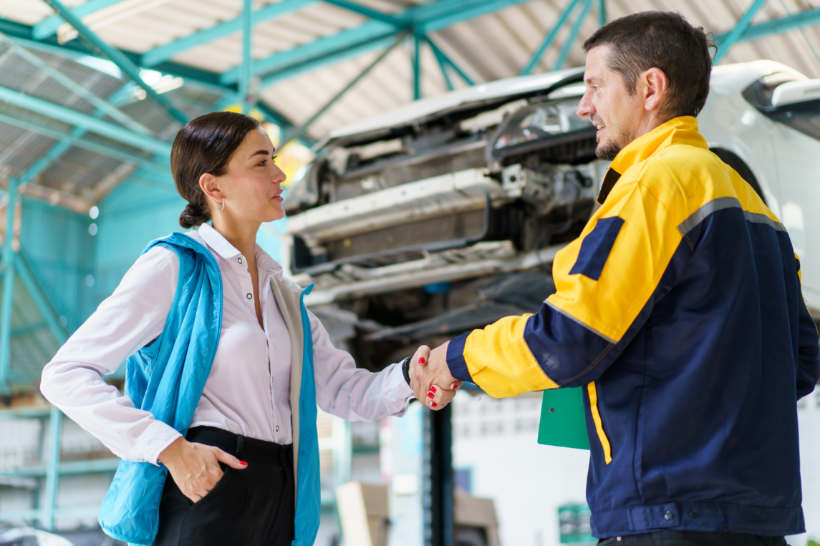 Discussing quality and expertise for professional car wrapping. (Source: iStock)
Discussing quality and expertise for professional car wrapping. (Source: iStock)
You don’t just need to find the cheapest car body wrap cost—you also need to consider the quality of work, materials used, and the experience of the installer. Here are the important things to look for to get the most out of your car wrap investment:
Experience and portfolio
A service provider with several years of experience is more likely to deliver high-quality results. They’ve probably dealt with different vehicle types and complex wraps, so they’re better equipped to handle your specific needs.
Always ask to see a portfolio of their past work. A reputable shop should have plenty of examples to show, either online or in person. Reviewing their portfolio will help you assess their expertise and determine if their style aligns with your vision.
Quality materials
High-quality wrap shops use reputable vinyl brands like 3M, Avery Dennison, or Oracal, which are known for durability and adhesive strength. Cheaper options might seem appealing for a low-cost car wrap, but they often result in fading, peeling, or bubbling over time.
A good shop will also offer a variety of finishes, from gloss and matte to chrome or textured. Just make sure that they use UV-resistant materials if your vehicle will be exposed to the elements frequently.
Reputation and reviews
A professional car wrapping service should have a solid reputation backed by good reviews. Check platforms like Google, Yelp, and social media to see customer feedback and examples of their work.
Shops that regularly post their projects show confidence in their craftsmanship, and you can see what recent wraps look like. Look for consistent positive reviews from satisfied customers. Word of mouth and personal recommendations from people you trust are often the best indicators of quality as well.
Post a task for car wrapping on Airtasker
Let’s face it: finding a quality car wrapping service isn’t easy, especially if you live in an area where top-rated shops are few and far between. Instead of spending hours researching and traveling to various locations, you can let Airtasker bring the experts to you.
Whether you’re looking for a sleek car wrap to promote your brand or a personalized design to reflect your unique style, Airtasker can connect you with pros who are ready to make it happen.
Just post a task on Airtasker to meet a wide range of vehicle wrappers and car bodywork experts. You can get quotes, discuss your ideas, and select a Tasker based on your preferences and budget. Take control of your car wrap project! Post a task on Airtasker today and find the perfect professional to bring your vision to life.
FAQs about car wrapping
The best material for car wraps is high-quality vinyl from brands like 3M, Avery Dennison, and Oracal, known for their durability and finishes. Vinyl with UV and weather resistance is also ideal, as it’s designed to withstand the elements and lasts up to eight years with proper care.
Wraps adhere best to smooth, well-maintained surfaces and damaged paint can cause bubbling or peeling. Significant issues like rust or flaking should be repaired before wrapping to ensure proper adhesion and avoid further damage.
Car wraps typically last 3 to 7 years, but they should be removed when signs of wear—such as peeling or cracking—become evident. Removal is also recommended before selling the vehicle to increase resale value if the underlying paint is in good condition.
Find car wrapping experts, fast
Post a task
Related price guides
Related articles
